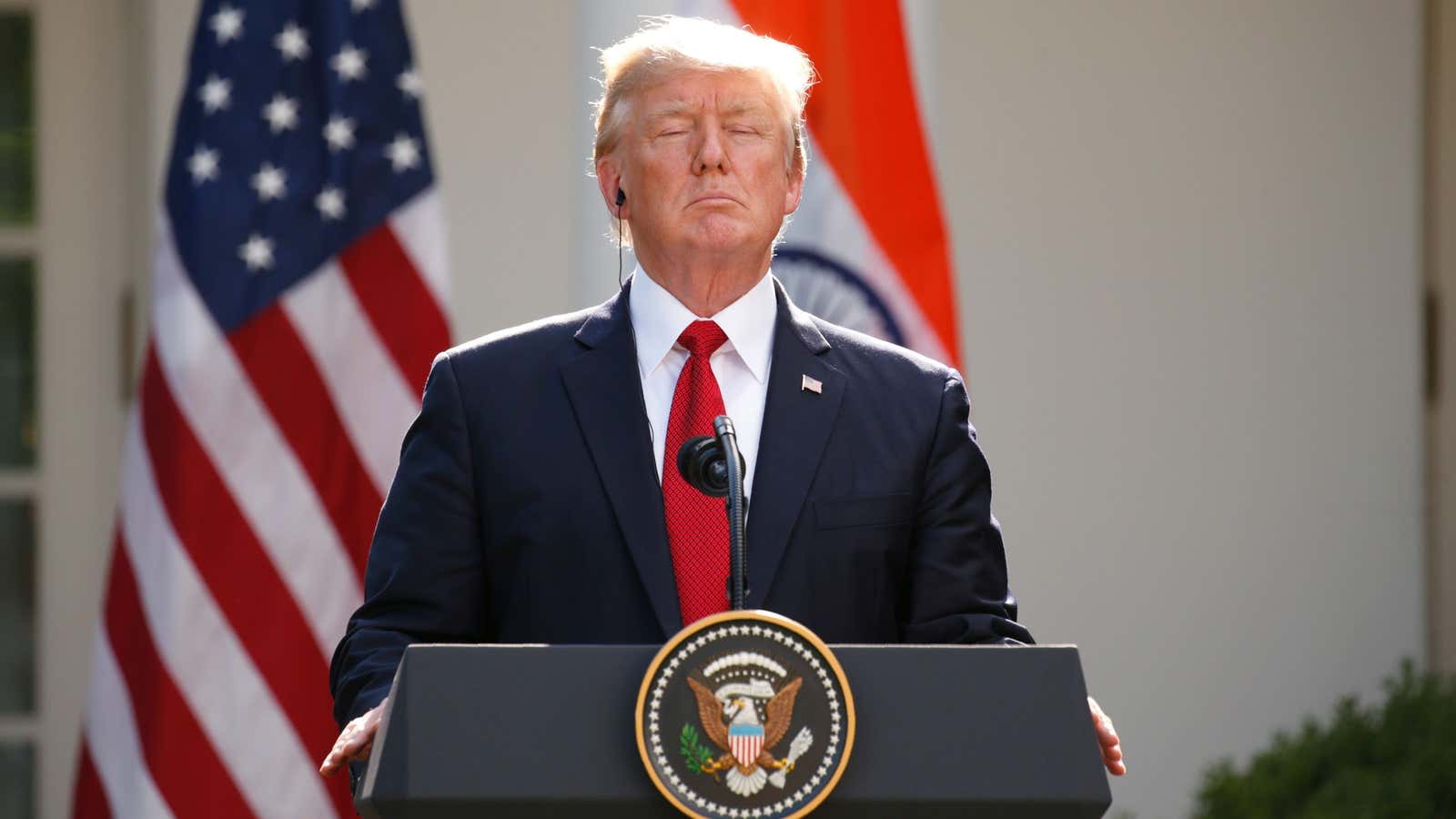The Donald Trump administration’s crackdown on work visas is hitting Indians disproportionately hard.
Between July and September 2017, the US denied H-1B visas to 23.6% of Indian applicants, up from 16.6% in the three preceding months, according to the latest data (pdf) released by the National Foundation for American Policy (NFAP), a non-profit, non-partisan organisation dedicated to public policy research.
This increased scrutiny is a result of president Trump’s “Buy American and Hire American” executive order signed in April 2017. “It took some time to get people into many of the key positions,” immigration attorney Greg Siskind told the NFAP. “Once we saw who was being appointed, a who’s who of stars in the anti-immigration world, no one was really surprised with what we’re seeing.”
Besides the uptick in outright denials, there has also been a sharp increase in the number of requests for evidence (RFE). These are notices the US authorities issue to visa applicants seeking more information on their applications.
Between July and September 2017, the Trump administration issued 63,184 RFEs, compared to 63,599 RFEs issued during the nine months prior. Several lawyers previously told Quartz that their clients were struggling with the high number of RFEs, which not only delay the visa process but also increase costs for companies.
Here, too, Indians took a severe beating.
Between July and September 2017, up to 72% of Indians applying for H-1B visas received RFEs, compared to 61% for all other countries. Between October and December 2016, during which period president Barack Obama was in office, only 18.2% of Indian applicants were asked to submit supplementary material.
And it’s not just the H-1B applicants who are in trouble.
Other US work visas
Almost half (48%) of the petitions for the L-1B—a visa category meant for existing employees with specialised skills—filed for Indian nationals were denied between July and September 2017.
As NFAP explained:
“…due to the time and expense, employers and attorneys only send in applications for individuals they believe have a good chance of gaining approval, which means it makes little sense to attribute an increase in the denial rate to a sudden influx of unqualified applicants, rather new restrictive policies.”
Even the L-1A visa, used by firms to transfer managers and executives to the US, saw the number of denials for Indians climb up to 16.4% by September 2017, up from 9.5% in December 2016.
This trend may further pick up pace in the future. In a July 13 memo (pdf), the US Citizenship and Immigration Services equipped its officers with the right to outright deny an application without furnishing RFEs first.
